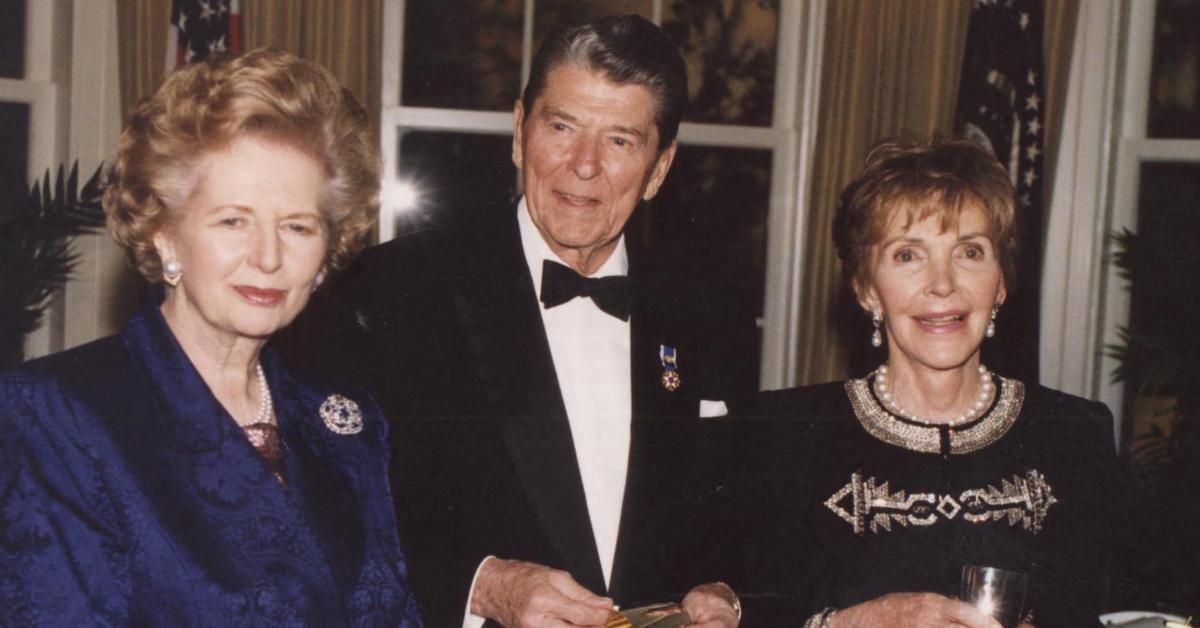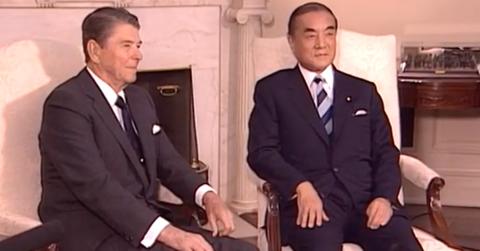While in Office, Ronald Reagan Imposed a Number of Tariffs, Primarily on Japanese Goods
"Over the long run, such trade barriers hurts every American worker and consumer."
Published Oct. 24 2025, 12:38 p.m. ET
There is certainly a lot to criticize when it comes to former President Ronald Reagan's time in office. The alleged War on Drugs comes immediately to mind, followed by the Iran-Contra affair. His administration was also responsible for cutting public health benefits during the AIDS crisis, though federal funding for research was eventually provided.
Some have argued that his economic policies, later known as "Reaganomics," destroyed the middle class by providing massive tax cuts to the richest citizens. His claim that the so-called "trickle-down effect" would help middle and working-class Americans never came to fruition. There is one area he was firm on, and that was the effectiveness of free trade. Did Reagan impose tariffs while in office? Here's what we know.

Did Ronald Regan use tariffs?
According to the Peterson Institute for International Economics, in 1980, Reagan ran for president on the idea that Japan was a threat to the American auto industry. During his first few months in office, Reagan "persuaded Japan to adopt significant 'voluntary' automobile import restraints, which remained in effect until 1985," per The University of Texas at Austin's Civitas Institute.
The president told Japan that if it didn't agree to these import restraints, "Congress would impose harsher import quotas and extend them to other Japanese products." This eventually happened when Reagan placed punitive tariffs on motorcycles and electronic products. Reagan secured agreements from European and Latin American nations on items like steel and textiles. Tariffs were placed on Canadian wood products, Italian pasta, motorcycles, and mushrooms.
In March 1986, Reagan announced his decision to place "quantitative restrictions on imports of certain articles" from the European Economic Community (EEC) in response to restrictions imposed on imports of United States grain and oilseeds into Spain and Portugal. According to The New York Times, in December 1986, the president imposed a 200 percent duty on European gin, brandy, white wine, assorted varieties of cheese, canned ham, endive, carrots, and olives.
What did Reagan say about tariffs?
While at Camp David in April 1987, Reagan addressed the Nation on Free and Fair Trade. In this speech, he discussed an upcoming visit from the Prime Minister of Japan. "It's an important visit because while I expect to take up our relations with our good friend Japan, which overall remains excellent, recent disagreements between our two countries on the issue of trade will also be high on our agenda."
He went on to reference recent duties he placed on Japan in response to their inability to enforce their trade agreement with the United States on electronic devices called semiconductors. "Imposing such tariffs or trade barriers and restrictions of any kind are steps that I am loath to take," said Reagan. "Over the long run, such trade barriers hurt every American worker and consumer," adding that this was a special case as Japanese companies were engaging in unfair trade practices that violated an agreement.
